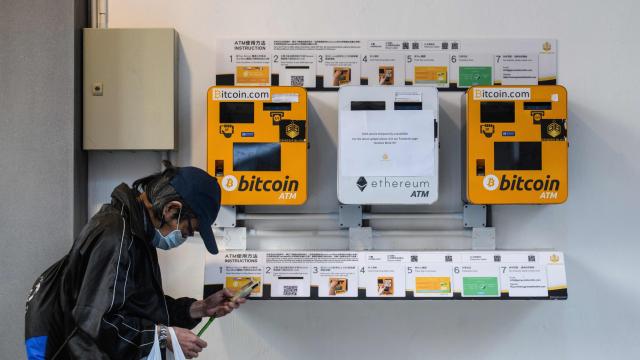The ongoing crackdown on cryptocurrency throughout China took one step further over the weekend, with popular social media site Sina Weibo terminating a number of major crypto accounts.
Sina Weibo, which is often compared to Twitter, is by far China’s largest social network and is heavily monitored by state authorities that censor information that the Communist Party of China considers sensitive or harmful to state interests. Chinese authorities are also known to maintain propaganda networks and surveil dissidents across the site, while bans are often interpreted as being directed by the state. Reuters reported that over the weekend, a number of prominent Chinese crypto accounts are now inaccessible with a message explaining the content “violates laws and rules,” with one well-known user who goes by the handle “Woman Dr. bitcoin” posting that it was “Judgement Day for crypto [key opinion leaders].”
That user has also since been blocked. According to the South China Morning Post, at least a dozen major accounts were banned, with cryptocurrency journalist Colin Wu tweeting they collectively had over five million fans.
Earlier, the Chinese government warned that the risk of individuals investing in cryptocurrencies should not be allowed to spread to society.
— Wu Blockchain (@WuBlockchain) June 5, 2021
Local cryptocurrency exchanges and financial instruments like initial coin offerings have been officially illegal in China since 2017, although a May 2021 report by CNBC relayed how tough talk from regulators has not often translated into consequences for traders who have simply migrated to offshore, grey market exchanges. That may change. The Sina Weibo bans come as Chinese authorities have become increasingly wary of the extreme energy impact of bitcoin mining and the way it threatens to undermine President Xi Jinping’s efforts to position China as a leader on the climate. According to the Wall Street Journal, a recent peer-reviewed report by Britain’s Nature Communications found that large-scale bitcoin mining operations often exploiting cheap hydroelectricity now rank in the top 10 industries by electricity consumption in China, meaning they suck more juice than the entire nation of Italy.
On May 21, the Financial Stability and Development Committee of China’s State Council issued a strongly-worded warning that it intended to crack down on crypto trading as part of a broader push to fight crime in the securities markets and more tightly stabilise stock, bond, and forex markets, according to Reuters. Around the same time, three Chinese industry bodies moved to restrict the use of cryptocurrency by banks and payment providers. Reuters wrote that Premier Liu He, who oversaw the meeting where the decision was announced, is the highest-ranking government official to directly target cryptocurrency, and the State Council had not previously taken action to restrict mining.
Liu said during the meeting that authorities will “crack down on bitcoin mining and trading behaviour, and resolutely prevent the transfer of individual risks to society,” the Post reported.
Analysts and a “financial regulator” told Reuters that more moves are anticipated, including changes that would place illegal cryptocurrency activities more directly under the main body of Chinese criminal law. The regulator explained to Reuters that currently, there is legal ambiguity surrounding “illegal operations” in crypto, and all crackdowns so far have been issued by administrative bodies. State-owned media organisations have also recently published a slew of material highlighting crypto scams and warning potential crypto buyers of the highly speculative nature of the market.
The bans were possibly, at least in part, responsible for a tumble in Bitcoin prices this weekend to under $US36,000 ($46,174), according to the Post. As of Monday afternoon, the price of Bitcoin stood at just under $US35,600 ($45,661).
